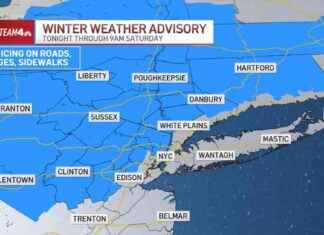Over the nearly nine decades that the Academy of Motion Picture Arts and Sciences has doled out the Oscars, there have been any number of events that could have thrown a wrench into planning the ceremony. To name a few: the Great Depression, the Second World War and 9/11.
But every year, the show goes on. How do those events shape the big, glitzy spectacle?
In some cases, not at all. But over time, awards shows have gotten more political. After a year such as 2016, with its acrimonious election and other memorable events, you can bet there will be speeches about the state of the nation. For proof, just look at Meryl Streep’s Golden Globes speech or Mahershala Ali’s SAG Awards acceptance.
Here’s a look at some of the ceremonies in particularly tumultuous years, and how they were affected — or not — by the news of the day.
1930
You would think that the year after the historic stock market crash, which was also the year of the first Oscars, the academy would have limited swanky dinners. But you’d be wrong. For the only time, there were two ceremonies in 1930, in a bid to shift the celebrations to a more timely schedule.
At a ceremony in April, the winner was the relatively lighthearted The Broadway Melody, the first musical to win an Oscar. Fast-forward to November, however, and the best-picture winner was considerably more dour: All Quiet on the Western Front.
1942
The 14th ceremony took place just a few months after the Japanese bombed Pearl Harbor. The academy considered cancelling the event, but settled instead on banning formal attire.
Patriotism was on display, with some attendees who had served in the military showing up in uniform, including Donald Crisp, who won best supporting actor for How Green Was My Valley. The first year that documentaries got their own award, the prize went to a bit of propaganda — Churchill’s Island, which celebrated the British victories so far during the war.
The battles abroad mostly took a back seat that evening to the one inside of the Biltmore Hotel, where the best actress race had turned into a sibling rivalry between Joan Fontaine and Olivia de Havilland. (Fontaine won.)
1943
War was still raging overseas when the 15th spectacle took place at the Cocoanut Grove nightclub in Los Angeles. The Oscars were made of plastic because of a metal shortage.
Stars who hadn’t joined the war effort probably felt much better about themselves after Crisp read a message from U.S. President Franklin D. Roosevelt.
“In total war, motion pictures, like all other human endeavour, have an important part to play in the struggle for freedom and the survival of democracy,” Crisp read.
1951
In 1950, the Cold War escalated, and U.S. troops headed to Korea. Sen. Joseph McCarthy, meanwhile, was hard at work outing Communists. But the Oscars were as self-obsessed as ever, with two showbiz movies dominating the evening: All About Eve and Sunset Boulevard. The big news out of the event wasn’t an impassioned speech about war or injustice, but the fact that Marlene Dietrich wore a dress that exposed her leg — all the way to the knee.
The Oscars generally steered clear of getting on McCarthy’s bad side, although the academy did unwittingly get political when it awarded Robert Rich the best original story Oscar six years later for The Brave One. Rich was a pen name for blacklisted screenwriter Dalton Trumbo.
1964
By just about every measure, 1963 was a dismal year. John F. Kennedy and Medgar Evers had been assassinated, Americans were overseas fighting in Vietnam, and strained relations with the Soviet Union continued.
By the time the Academy Awards happened in April the following year, people really needed a laugh — which may help explain why Tom Jones, a British comedy, won best picture.
As civil rights activists continued their fight, Sidney Poitier became the first black best actor winner. Notably, he won for a role in which his race wasn’t part of the story, playing a handyman helping some nuns in Lilies of the Field.
1968
The Rev. Martin Luther King Jr. was assassinated on April 4, 1968, four days before the Oscars were to take place. Four black performers scheduled to have a role in the ceremony — Sidney Poitier, Diahann Carroll, Sammy Davis Jr. and Louis Armstrong — cancelled. But when the academy agreed to move the event back two days, they showed up.
Gregory Peck, the academy president at the time, delivered a dedication to King at the beginning of the ceremony.
“Society has always been reflected in its art, and one measure of Dr. King’s influence on the society we live in is that of the five films nominated for best picture of the year, two dealt with the subject of understanding between the races,” Peck said, referring to In the Heat of the Night and Guess Who’s Coming to Dinner. “It was his work and his dedication that brought about the increasing awareness of all men that we must unite in compassion in order to survive.”
Then host Bob Hope came out and made a few awkward jokes about what a hassle the delay had been.
1972
By the early 1970s, many Americans were becoming increasingly fed up with the war in Vietnam, notably Oscar nominee Jane Fonda. The big question was, if she won for Klute, would she use her acceptance speech as a platform for politics?
Well, she won. And her big message? “There’s a great deal to say, and I’m not going to say it tonight.”
At the time, political speeches were unheard of — that is, until the following year, when Marlon Brando won for The Godfather, but sent native American Sacheen Littlefeather in his place to send a message about the mistreatment of her people.
2002
The first Oscar ceremony after 9/11 could have been cancelled. After all, the Emmys, scheduled for Sept. 16, 2001, had to be delayed twice, and when the ceremony finally happened, it was a drag. But academy President Frank Pierson insisted that the patriotic move would be to go forward with the event.
“The world will see an American tradition continue, and will take notice,” he wrote in Variety. “If we give in to fear, if we aren’t able to do these simple and ordinary things, the terrorists have won the war.”
A few changes had to be made for security purposes, but the biggest surprise was the appearance of Woody Allen, who had never before attended a ceremony despite many nominations and a couple of wins. He came to pay tribute to his home city by introducing a montage of movie clips that featured the Big Apple.
“For New York City, I’d do anything,” he told the viewers. “So I got my tux on and came down here.”
2003
Up to the last minute, the fate of the Oscars was in question. The ceremony took place the same week that George W. Bush declared war on Iraq. But, as always, the show went on. It did so without a red carpet, however, and also without Will Smith, who was one of the celebrities who backed out, either for security or sensitivity reasons.
Michael Moore, who won the prize for best documentary for Bowling for Columbine, couldn’t resist the chance to get political.
“We live in a time with fictitious election results that elect fictitious presidents,” he said as an audience divided booed and clapped. “We live in a time when we have a man sending us to war for fictitious reasons. Whether it’s the fiction of duct tape or fiction of orange alerts, we are against this war, Mr. Bush. Shame on you, Mr. Bush, shame on you.”
Considering he predicted Donald Trump’s win, it wasn’t the last time he was prescient.
The Toronto Star and thestar.com, each property of Toronto Star Newspapers Limited, One Yonge Street, 4th Floor, Toronto, ON, M5E 1E6. You can unsubscribe at any time. Please contact us or see our privacy policy for more information.
Our editors found this article on this site using Google and regenerated it for our readers.















